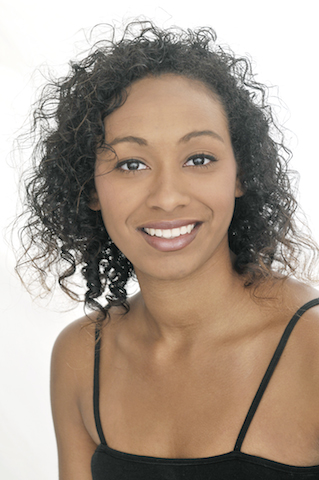 Nikyta Moreno graduated from The Brit School, London, in 2008 from the Dance Strand, with a triple distinction. She then trained at Trinity Laban Conservatoire of Music and Dance, London, graduating in 2011 with a BA (Hons) Dance Theatre degree.
Nikyta Moreno graduated from The Brit School, London, in 2008 from the Dance Strand, with a triple distinction. She then trained at Trinity Laban Conservatoire of Music and Dance, London, graduating in 2011 with a BA (Hons) Dance Theatre degree.
In 2010 she was invited to a summer Internship with the Merce Cunningham Dance Company, and in 2011, she performed at Performers House, Denmark, in ‘In The Neighbourhood’, choreographed by German born and UK based choreographer Frauke Requardt. That same year Nikyta performed her own work at Wireless music festival alongside music artist Charlotte Rene.
Nikyta then moved to New York where she continued to train, specifically at The Ailey School. From 2012-2013 she danced for SoulRebel Dance Company, based in Brooklyn, NY. She performed ‘Thread’ choreographed by Will Brown in Philadelphia and collaborated with filmmaker Geoffrey Stevens at the beginning of this year. Since January 2014, she has worked with Daniel Gwirtzman Dance Company and JD Dansfolk Dance Company (both modern companies are based in New York).
Nikyta Moreno also teaches at The School at Steps and South Asian Youth Action.
When did you begin dancing, where and why?
My parents enrolled me into ballet and tap classes at the age of 4, at East London School of Dance. The school is still running and is based in Forest Gate, East London.
What were your early years of dancing like?
They were very hectic but enjoyable. I trained in ballet, tap, jazz and modern, therefore I attended class three times a week after school. Every spring, summer or autumn term I had an RAD or ISTD exam.
How long have you been performing? Did you start young?
I have been performing for 10 years now. My first performance was at the age of 14, where I performed to Prince Phillip at the Barbican theatre. It was a very exciting experience for me. I remember feeling like a celebrity.
Where did you train and what was a typical day like?
I received my Dance Diploma at The Brit School, and then went onto receive my degree in BA (Hons) Dance Theatre at Trinity Laban Conservatoire.
My school days at The Brit School were always busy but full of laughter and excitement. There was never a dull day at The Brit School! My typical day would start at 8.45am and end at 5pm with one 15 minute break and one hour break. I trained in Ballet, Tap, Jazz, Contemporary, Modern and Musical Theatre. Each day consisted of two dance classes and one written class. Every term we ended with a showcase in the Obie Theatre, therefore our day would also consist of rehearsals.
At Trinity Laban Conservatoire my days varied from year to year. My first and second year consisted of a mixture of dance and written classes, whereas in my third year I only had dance classes and rehearsals. At Trinity Laban I trained in Ballet, Graham, Cunningham, Limon and Release Technique. My day would start at 8.45am and would end around 7 or 8pm, due to workshops or rehearsals. My day would consist of 3-4 dance classes, a written class and rehearsals.
When I moved to New York I continued my training at The Ailey School, on the Independent Programme. As I was on the Independent Programme I was able to choose what dance styles I wanted to train in and create my own timetable. I did 14 classes a week; each class was 90 minutes. I trained in Ballet, Horton, Graham, Jazz, Taylor Technique and Hip Hop.
My typical day consisted of three dance classes with a one hour break. My day would start at 8.30am with a Ballet class and finish at 3.45pm with either a Jazz or Hip Hop class.
Did you face any particular challenges?
When I first auditioned for The Brit School, I actually did not receive a place, it was after appealing I then received a place in the Dance Strand.
The Brit School was definitely the start and foundation of my dance journey and career; it is where I truly learnt about the dance art form. If I had never appealed who knows what my career path would have been, or where I would call home.
What is a typical day like now?
I usually start my day at 9.15am with a Hot Power Vinneysa class, then attend company dance rehearsals. Rehearsals could be up to fours hours a day. After rehearsals I either teach or attend open dance classes (depending on what day it is).
How do you keep on top of your technique?
I still train! I believe as a dancer you can never stop growing, there are always areas for improvement. I attend a Hot Power Vinneysa class every day and a ballet, contemporary and pilates class at least once in a week.
What’s the best part about dance?
For me the best part about dance is performing! The thrill you get when on stage! It is a very rewarding feeling to show choreography that you have complete movement ownership of, and to share your love and passion for the art form to everyone who is present in space.
What would you say was your greatest achievement to date?
My greatest achievement has definitely been moving to New York. I have been lucky to have a successful dance career here so far and to have met great practitioners. August 2014 will make it three years since I have moved, and the time has just flown by!
What advice would you give to someone aspiring to be part of the dance industry?
Never, EVER, give up! Every no you receive take it as a blessing and push harder. People are always going to say no, but one day that no will become a yes! It is your job to make that no into a yes!
Be you! Everyone else is taken. Figure out what works for you; what you like and what you don’t like, work hard and master what you are good at. Don’t compare yourself to other dancers.
Always attend class, read everything you can get your hands on! Never stop learning!
What’s next for you?
My next aim is to be in the Broadway musical ‘The Lion King’. I will continue to strive for this goal, but in the meantime I will continue to train, teach, hold workshops and work with companies, organisations, here in the United States.
I would also like to travel to different states in the U.S., and dance with different companies. I recently received the opportunity to visit the Houston Met Dance Company in Houston, Texas. It was an amazing experience to dance with a different company, in a different environment and meet and work with new dancers and teachers.
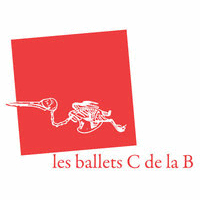 Founded for a dare in 1984, les ballets C de la B is mix of surrealism, slapstick and semiotics within the sphere of dance. It’s ethos has consequently made it one of the world’s most influential dance theatre companies. Since then it has become a company that enjoys great success at home (Belgium) and abroad. Over the years it has developed into an artistic platform for a variety of choreographers and the company still keeps to its principle of enabling artists from various disciplines and backgrounds to take part in this dynamic creative process.
Founded for a dare in 1984, les ballets C de la B is mix of surrealism, slapstick and semiotics within the sphere of dance. It’s ethos has consequently made it one of the world’s most influential dance theatre companies. Since then it has become a company that enjoys great success at home (Belgium) and abroad. Over the years it has developed into an artistic platform for a variety of choreographers and the company still keeps to its principle of enabling artists from various disciplines and backgrounds to take part in this dynamic creative process.
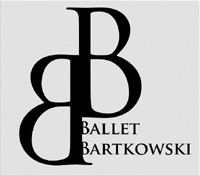 Ballet Bartkowski is a new professional company for ballet students working at a high level of classical dance, aged 18 to 23. Based in Croix, near Lille in France, Ballet Bartkowski was founded by Heidi and Waldemar Bartkowski with the aim to open the company in September of this year.
Ballet Bartkowski is a new professional company for ballet students working at a high level of classical dance, aged 18 to 23. Based in Croix, near Lille in France, Ballet Bartkowski was founded by Heidi and Waldemar Bartkowski with the aim to open the company in September of this year. Nikyta Moreno graduated from The Brit School, London, in 2008 from the Dance Strand, with a triple distinction. She then trained at Trinity Laban Conservatoire of Music and Dance, London, graduating in 2011 with a BA (Hons) Dance Theatre degree.
Nikyta Moreno graduated from The Brit School, London, in 2008 from the Dance Strand, with a triple distinction. She then trained at Trinity Laban Conservatoire of Music and Dance, London, graduating in 2011 with a BA (Hons) Dance Theatre degree. For many dance students, the summer spells summer schools and dance intensives. These summer training programmes are designed to push dance students further and give them another dance experience. They can vary in length, style and structure, but it is important to make the most of the programme while looking after your body.
For many dance students, the summer spells summer schools and dance intensives. These summer training programmes are designed to push dance students further and give them another dance experience. They can vary in length, style and structure, but it is important to make the most of the programme while looking after your body. At the recent opening of the Glasgow 2014 Commonwealth Games, young performers from the National Youth Theatre appeared as part of the ceremonies to welcome the countries’ teams. The cast of 60 NYT members were involved in the Village Ceremonies, which included the opening of the athletes’ village, the team welcome celebrations and the imminent farewell ceremony, meaning the performers will have much exposure throughout the Games and will be present during many parts of the ceremonies.
At the recent opening of the Glasgow 2014 Commonwealth Games, young performers from the National Youth Theatre appeared as part of the ceremonies to welcome the countries’ teams. The cast of 60 NYT members were involved in the Village Ceremonies, which included the opening of the athletes’ village, the team welcome celebrations and the imminent farewell ceremony, meaning the performers will have much exposure throughout the Games and will be present during many parts of the ceremonies. The recent performances of the New English Ballet Theatre were a breath of fresh air for its spread of audiences. Opening night at the Peacock Theatre, London, saw a multitude of audiences vying for a taste of the company’s work, still reasonably new and fresh on the dance and ballet scene. The cast were all a credit to the company, well trained dancers who ate up the stage.
The recent performances of the New English Ballet Theatre were a breath of fresh air for its spread of audiences. Opening night at the Peacock Theatre, London, saw a multitude of audiences vying for a taste of the company’s work, still reasonably new and fresh on the dance and ballet scene. The cast were all a credit to the company, well trained dancers who ate up the stage.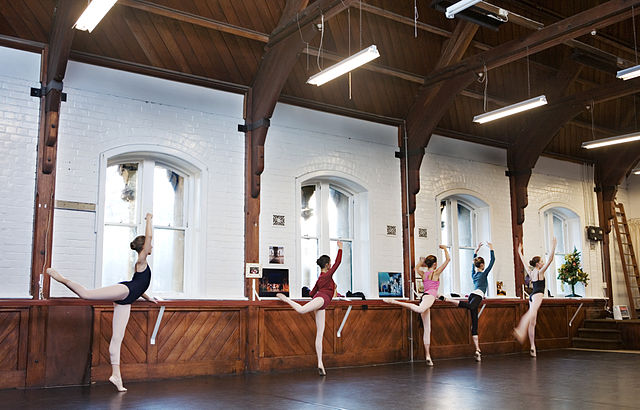 Choosing a dance school is of utmost importance for your budding dancer. For young dancers it is important they have fun in addition to learning about the dance basics before they progress further. With older dancers who are changing dance studios, it may be an idea to find out where current and former students of the studio are and what they are doing. Depending on how serious your child is about dance, it is importance to find a dance school with excellent technical training alongside a passion for developing youth dance.
Choosing a dance school is of utmost importance for your budding dancer. For young dancers it is important they have fun in addition to learning about the dance basics before they progress further. With older dancers who are changing dance studios, it may be an idea to find out where current and former students of the studio are and what they are doing. Depending on how serious your child is about dance, it is importance to find a dance school with excellent technical training alongside a passion for developing youth dance. West End superstars Cats and Evita are set to be returning to the West End for limited runs at the London Palladium and Dominion Theatre respectively.
West End superstars Cats and Evita are set to be returning to the West End for limited runs at the London Palladium and Dominion Theatre respectively. Physical theatre company Frantic Assembly is set to partner with Coventry University in order to deliver a postgraduate qualification in theatre-making, much to the delight of many of its fans and followers. The two organisations have claimed this marks the first time a professional theatre company has been involved in the creation of a master’s degree programme in the UK, and is thought to offer participants an enriched and all-round fulfilling education.
Physical theatre company Frantic Assembly is set to partner with Coventry University in order to deliver a postgraduate qualification in theatre-making, much to the delight of many of its fans and followers. The two organisations have claimed this marks the first time a professional theatre company has been involved in the creation of a master’s degree programme in the UK, and is thought to offer participants an enriched and all-round fulfilling education.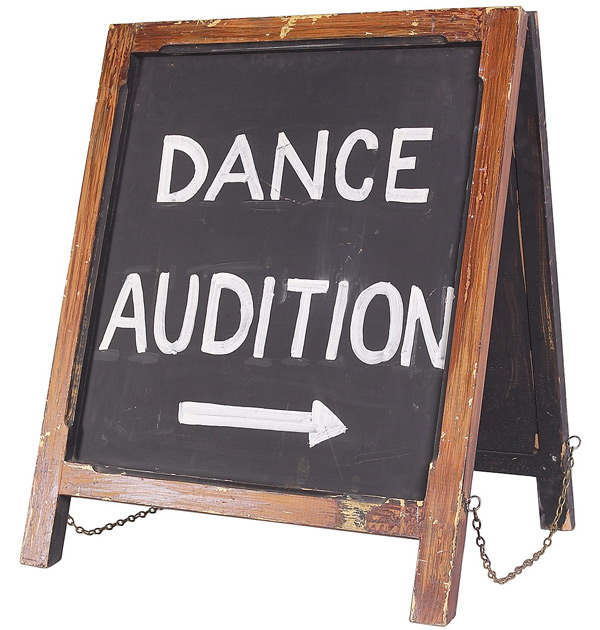 Making the transition from student to professional is a hazy one – dancers can gain employment whilst in full-time training and there are factors that can help navigate the transition. Aside from having talent and passion, dancers need to be self-motivated, persistent and professional. It’s also much easier to survive if you are liked by your peers and professionals, and have a reputation of working hard and making the most of every opportunity.
Making the transition from student to professional is a hazy one – dancers can gain employment whilst in full-time training and there are factors that can help navigate the transition. Aside from having talent and passion, dancers need to be self-motivated, persistent and professional. It’s also much easier to survive if you are liked by your peers and professionals, and have a reputation of working hard and making the most of every opportunity.